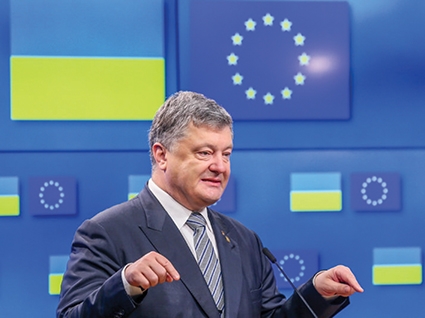European Commission Punishes Ukraine over Timber Export
The refusal of the European Commission to transfer to Kyiv a third tranche, under the assistance program, for EUR 600 million is expected to affect social targeted assistance, the salaries of public sector employees, the reform of the management system and obligations to service Ukraine's external debt.
The assistance program for EUR 1.8 million was approved by the European Commission in 2015. During this time, Kyiv received two tranches of EUR 600 million each, but was denied the last. The European Commission announced that this was due to the fact that Ukraine has not been able to fulfill a number of conditions, the most important of which is connected with the lifting of the ban on export of wood a moratorium on the supply of which was introduced almost immediately after the signing of the memorandum with the European Union.
In Brussels, however, this denial of funds was considered a violation of the Association Agreement which had as an indispensable condition the issuing of tranches. The bill to lift the moratorium even went to Parliament, but the ban was never cancelled. Among other outstanding conditions for obtaining a tranche was the creation of a Supreme Anti-Corruption Court, introduction of a law on the credit registry of the National Bank, and disclosure of information about ultimate beneficiaries of companies.
"The EC's refusal to transfer the tranche can cause serious problems for Ukraine,” said Andranik Migranyan is an Armenian-born Russian politologist. “The bulk of the financial resources received from external creditors, including the EU, are directed to servicing the budgetary sphere, and it may result in difficulties for the Government of Ukraine in its ability to fulfill its obligations to the population.”
Problems will be seen with social targeted assistance, payment of salaries for state employees, maintenance of the state apparatus, financing of the management system reforms, anti-corruption and other programs actively financed from the EU, “but,” Migranyan says, “to a greater extent the situation will affect obligations to service Ukraine's external debt. Kyiv traditionally uses tranches to repay interest on debts.”
He added that this situation cannot be called catastrophic, and that we should not expect to hear any loud statements from high-ranking officials about the loss of solvency and financial stability of Ukraine, as “Kyiv receives parallel financing from other external sources, including domestic financing, albeit to a much lesser extent,” the expert said.
The EC has also reassured Ukraine by announcing a successor program according to which Brussels is ready, if necessary, to provide new macro-financial support in early 2018.
"It is impossible to talk about changes in financing if a new program appears until its content is presented. It is necessary to examine in detail, under what conditions, as well as for what purposes and activities, the new EU projects provide funding," Migranyan said.
Dimitri Dolaberidze











